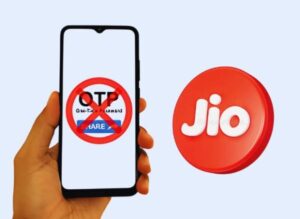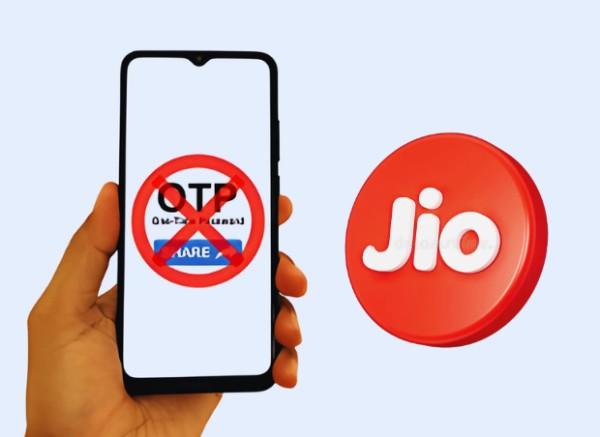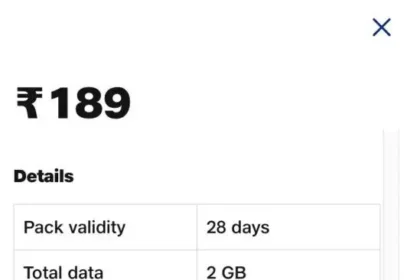The Telecoms Regulatory Authority of India better referred to as TRAI has recently released a decision on a significant port that will significantly alter how telecoms operators approach message traceability solutions.
- Understanding the TRAI Traceability Rule
- Why Is TRAI Implementing This Rule?
- The Threat of Fake OTPs
- Challenges for Telecom Providers
- Potential Delays in OTP Delivery
- Technical and Financial Burden
- What Does This Mean for Users?
- Mukesh Ambani’s Vision for a Safer Digital India
- How Reliance Jio is Preparing
- The Future of OTPs and Messaging
- Implications for the Industry
- What Can Users Do?
- The Road Ahead for Telecom Providers
- Conclusion
From December 1, 2024, telecom providers such as Mukesh Ambani’s Reliance Jio, Bharti Airtel, Vodafone Idea (Vi), and BSNL will be bound by a new trackability regulation intended to help fight the constantly increasing spammers’ messages and phishing attacks.
This rule insists that all the text messages that are sent including the promotional ones as well as One-Time Passwords (OTPs), are traced back to their origin to increase their effectiveness.
As the cases of cyber scams and fraudulent activities are increasing, this regulation is a positive step towards making digital security better. However, the decision raised controversies, and the giants of telecommunication have expressed their concern towards the operation problem and interruption in OTP delivery.
Amidst India waiting for this transformation, the take focus is placed on how Mukesh Ambani’s JIO and other operators will fare in this new order.
Understanding the TRAI Traceability Rule
The TRAI traceability rule is a specific measure that is aimed at combating the increase in spam and phishing messages, the problems that are present in the online world on ever ever-growing scale.
Out of all the rules formulated in the seven-country accord, only one pertains to telecom providers, all messages transmitted through their network must have an identifiable source.
Even as this step is expected to enhance the consumers’ protection it will also likely have profound effects on the routine affairs of life including banking, shopping, and using applications.

Key Highlights of the Rule
- Applies to All Messages: What the rule spells out for compliance are all forms of messages from commercial promotions to transactional messages and OTPs.
- Focus on Security: The main idea is to protect users from identity crises where fraudsters use messaging apps to obtain highly sensitive data like OTPs.
- Revised Deadlines: Originally, the measurement was to be implemented from October 1, 2024, but it was moved forward twice at the request of the industry, the last change being the final deadline of December 1.
Why Is TRAI Implementing This Rule?
The two global trends having an impact in India are the use of the internet and smartphones which have provided convenience but also have their threats. Spam messages as well as phishing are today on the rise with most unscrupulous characters using fake OTP in this process to defraud users’ bank details.
Mukesh Ambani’s Reliance Jio’s chairman, Mukesh Ambani, who has recently pushed forward numerous technologies, has always stressed the issue of security. TRAI’s rule conforms to this vision, making the digital world safer for millions of Jio users and everyone else.
The Threat of Fake OTPs
It is noteworthy that impostors love to use fake OTP messages. They usually resemble real messages and this is how the user reveals personal details requested by a scammer. TRAI’s traceability rule seeks to plug this deficit by putting the onus on message senders.
Challenges for Telecom Providers
But the traceability rule is again meant for a good cause, however, telcos including Jio owned by Mukesh Ambani, Airtel, Vi and BSNL have raised some concerns with its execution.
Potential Delays in OTP Delivery
One of the most significant concerns is the unpredictability of OTP message delivery time. Because traceability means extra layers of verification, users can be getting OTPs after a while, compared to direct delivery. This could impact services like:
- Banking Transactions: Use of OTPs could lead to delays this was because failure to receive them on time could hamper other financial activities.
- E-commerce: Customers can have difficulties related to purchase making during flash-sale.
- Travel Bookings: Trade could be affected negatively by delayed OTPs in as much as ticket reservation is concerned.
Technical and Financial Burden
It should be noted that the application of traceability measures is associated with fundamental upgrades to the telecom infrastructure. For other such firms that are already technologically advanced, including Mukesh Ambani’s Reliance Jio, it can be less of a challenge.
However, from start-ups and middle players, such investments could be highly valuable, and in some cases could result in substantial financial and technical risks.
What Does This Mean for Users?
In simple terms, from the first of December, the owners of Jio, Airtel, Vi, and BSNL should get ready for the new means of communication with these networks. Here’s what you need to know:
- Enhanced Security: What may be inconvenient is the OTPs being delayed, though the new jihadist increases protection against phishing and fraud a great deal.
- Proactive Measures: This means that users should take their time and engage in activities that require OTPs to be generated, to do so they should pre-organize.
- Reduced Spam: Due to enhanced traceability, the number of promotional spam messages is expected to reduce thus providing a clean outlook of the email.
Mukesh Ambani’s Vision for a Safer Digital India
Mukesh Ambani has embraced digital transformation in the Indian market for many years. Within Reliance Jio, he has transformed the telecom sector and also contributed immensely to the cause of cybersecurity.
How Reliance Jio is Preparing
- Advanced Infrastructure: Mukesh Ambani’s Jio has already integrated innovative applications such as AI and blockchain technologies, which can afford to facilitate the traceability rule.
- Consumer Education: They always inform the users of threats through campaigns to keep them updated with the new changes.
- Collaboration with TRAI: Mukesh Ambani increased its investment in Jio which has been involved with TRAI to facilitate effective implementation of these steps.
The Future of OTPs and Messaging
The TRAI traceability rule can be seen as the first of many shifts in India’s telecoms space. Indeed, another major regulation is planned for implementation at the beginning of 2025 concerning the stabilization of Right of Way (RoW) costs that would help stimulate 5G infrastructure development.
Implications for the Industry
- Improved Security Standards: It marks that improvement measures such as traceability will enable India to put up world-class telecommunications security.
- Push for Innovation: Indian firms like Reliance Jio run by Mukesh Ambani will have to try new strategies harder.
- Consumer Trust: This means that, through addressing some critical security issues, the telecom providers can gain more customer confidence and hence customer loyalty.
What Can Users Do?
To navigate these changes effectively, users should adopt the following practices:
- Stay Informed: Sign up for updates from TRAI as well as your telecom service provider to see how these new rules will affect you.
- Secure Your Devices: Passwords must also be strong and wherever there is an option one must use two-factor authentication.
- Report Spam: If you come across any messages that are suspicious, then you are supposed to report them to your provider or TRAI.
The Road Ahead for Telecom Providers
Telecom service providers are caught in the middle with the new regulations with telecom policy makers TRAI headed by chairman Shri R S Sharma deciding to tighten the screws even further on players such as Mukesh Ambani’s Reliance Jio, Sunil Mittal’s Bharti Airtel and others.
While the initial implementation may pose challenges, the long-term benefits are undeniable:
- Stronger consumer trust: It can be expected that users will gain an additional level of safety when using the products, due to the protection of personal data and communication.
- Enhanced brand reputation: The providers who choose and implement the changes rapidly and effectively will gain a competitive advantage.
Conclusion
The TRAI traceability rule is an ambitious move to curb the scourge of spam and phishing in India’s Telecom sector. Although it may cause some difficulties in the beginning, the positive effects of a higher level of security and lower fraud rates cannot be overemphasized.
This is a golden chance for Mukesh Ambani’s Reliance Jio and other telecom players to prove their safety standards and digital transformational initiatives. While the overall goal is to hail safer web use, users who make money online must prepare for possible difficulties being met closer to December 1.
At the helm of Indian leading telecom companies are visionary leaders such as Mukesh Ambani suggesting strongly that India’s telecom industry is capable of emerging from these changes stronger.
To know more about the new changes in telecom rules and how it is going to affect Jio, Airtel, Vi, and BSNL, kindly click here. For more details about Jio latest update, click here for covering recent news about Jio plans and services.








